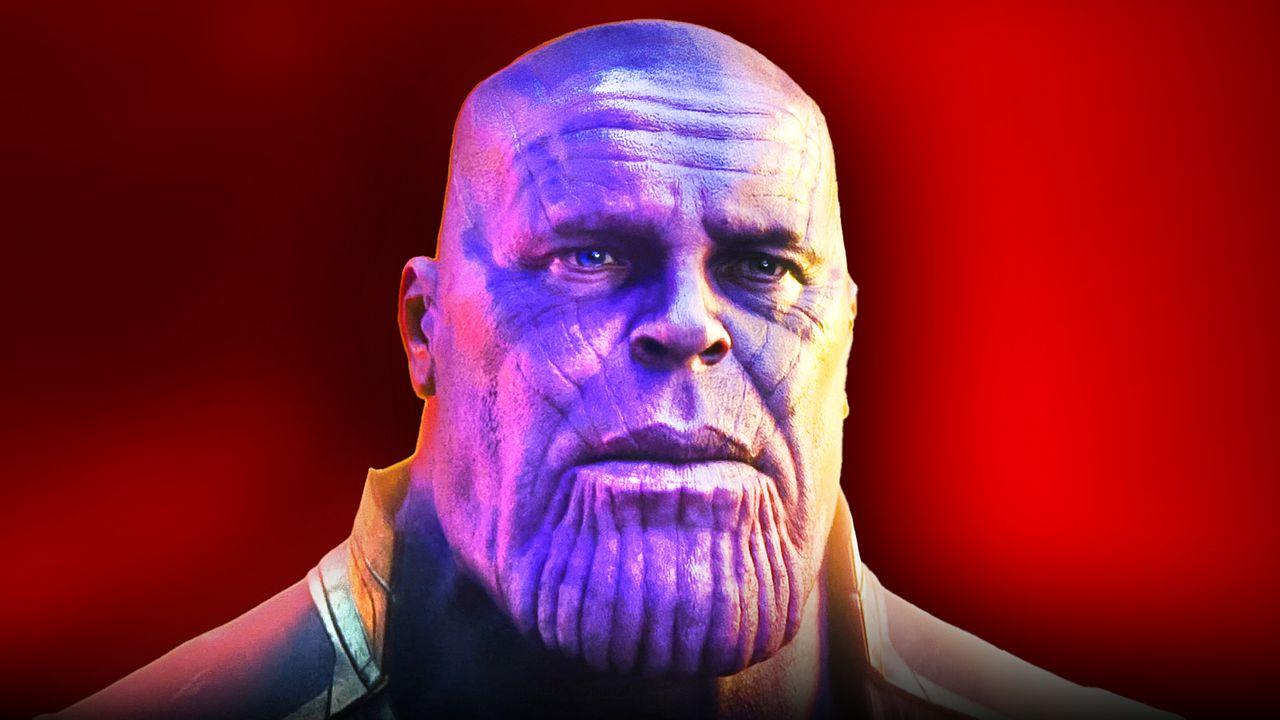Thanos sits down to contemplate his actions, a moment that resonates deeply with fans of the Marvel Cinematic Universe (MCU). This powerful character, portrayed by Josh Brolin, is not just a villain but a complex figure whose motivations and philosophies challenge our understanding of morality and sacrifice. In this article, we will explore the intricacies of Thanos's character, his philosophical dilemmas, and the broader implications of his actions in the MCU.
As we delve into the mind of Thanos, we will uncover the layers of his personality, examining how his past experiences shaped his worldview. The concept of "balance" that Thanos so fervently believes in raises questions about the nature of justice and the cost of achieving peace. Through this exploration, we aim to provide insight into what makes Thanos one of the most compelling characters in modern cinema.
Furthermore, we will take a closer look at the impact of Thanos on popular culture and the discussions he has sparked among fans and critics alike. His infamous line, "I am inevitable," has become a hallmark of villainy, but it also serves as a gateway to deeper conversations about power, responsibility, and the human condition. Join us as we embark on a journey through the universe of Thanos, where we will dissect his philosophy and its repercussions.
Table of Contents
- Biography of Thanos
- Characteristics and Traits
- Thanos's Philosophy Explained
- Impact on Popular Culture
- Fan Theories About Thanos
- Conclusion
Biography of Thanos
Thanos, also known as the Mad Titan, is a fictional character appearing in comic books published by Marvel Comics. He was created by writer Jim Starlin and first appeared in "The Invincible Iron Man" #55 in 1973. Thanos is a member of the Eternals, a race of superhumans, and possesses immense strength and intelligence.
His backstory reveals a tragic upbringing on the planet Titan, where he was ostracized due to his physical appearance and philosophical beliefs. This experience shaped his worldview and later fueled his quest for power and control over the universe.
| Detail | Information |
|---|---|
| Name | Thanos |
| First Appearance | The Invincible Iron Man #55 (1973) |
| Portrayed by | Josh Brolin |
| Species | Eternal |
| Abilities | Superhuman strength, intelligence, telepathy, and immortality |
Characteristics and Traits
Thanos is characterized by his immense physical power and strategic mind. His defining traits include:
- Intelligence: Thanos is not just physically powerful; he is a master strategist who often outsmarts his opponents.
- Determination: His unwavering commitment to his goals, no matter the cost, showcases his relentless nature.
- Complex morality: Thanos operates under his moral code, believing that his actions, however brutal, serve a greater good.
- Isolation: His past experiences have led him to a life of solitude, making it difficult for him to connect with others.
Thanos's Philosophy Explained
The philosophy of Thanos is deeply rooted in his belief in balance. He believes that the universe is overpopulated, leading to scarcity and suffering. To counteract this, he devises a plan to eliminate half of all life, which he sees as a necessary sacrifice for the greater good. This philosophy raises several important questions:
1. Is Sacrifice Justified?
Thanos's belief that sacrifice is necessary for balance is a recurring theme in moral philosophy. His actions prompt us to consider the ethics of utilitarianism, where the ends justify the means.
2. The Cost of Power
Thanos's quest for the Infinity Stones and ultimate power raises questions about the consequences of absolute power. What are the moral implications of wielding such power, and at what cost?
Impact on Popular Culture
Thanos's character has made a significant impact on popular culture, particularly through his portrayal in the MCU. His role in "Avengers: Infinity War" and "Avengers: Endgame" has sparked discussions about morality, justice, and the nature of evil.
Fans have engaged in debates about his philosophy, with some viewing him as a misunderstood anti-hero rather than a traditional villain. This complexity has allowed Thanos to become a subject of academic study and analysis, further cementing his place in popular culture.
Fan Theories About Thanos
The Marvel fan community has generated numerous theories regarding Thanos's character and future. Some of the most popular theories include:
- Thanos's Redemption: Some fans speculate that Thanos may seek redemption for his actions in future stories.
- Alternate Universes: The multiverse theory opens up possibilities for alternate versions of Thanos to appear in future Marvel films.
- Legacy of Thanos: The impact of his actions could lead to new villains or heroes emerging in response to his legacy.
Conclusion
In conclusion, Thanos sits down to reflect on his journey, prompting us to explore the complexities of his character and the philosophical dilemmas he embodies. His belief in balance, the morality of sacrifice, and the consequences of power raise important questions that resonate with audiences worldwide. As we continue to engage with the Marvel Cinematic Universe, Thanos's legacy will undoubtedly live on, inspiring discussions and debates for years to come.
We invite you to share your thoughts on Thanos and his philosophy in the comments below. What do you think about his actions? Do you see him as a villain or an anti-hero? Feel free to explore more articles on our site for a deeper understanding of the Marvel Universe.
Thank you for joining us on this exploration of Thanos. We hope to see you again soon!
Article Recommendations
- Loc>
- Tcm Films Tonight Your Ultimate Guide To Classic Cinema And Timeless Treasures
- Starbucks And The Stanley Cup A Perfect Blend Of Coffee And Sports


